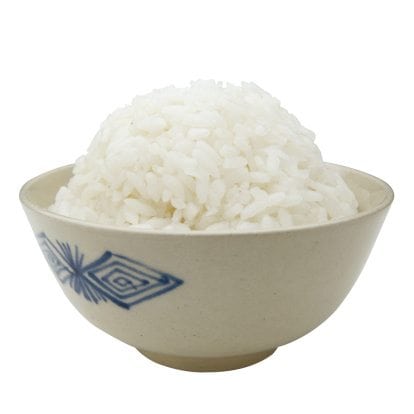Rice, a cereal grain, ranks among the world’s most common food staples. But white rice, scorned and ridiculed by the health-minded for its sugary simple carbohydrates, over-processing and empty calories, is in the midst of a reputational makeover.
Time magazine, citing two studies in the past year, recently argued that white rice under specific circumstances is not an ugly refined carbohydrate absorbed quickly by the body and most often stored as fat-inducing unused calories but a resistant starch that aids digestion and converts to fatty acids that the body burns as energy.
Is this the same white rice reduced in recent years by the carb-conscious to a home remedy for diarrhea and heartburn? Well, yes, if cooked and then cooled. The cooling, it turns out, reconfigures rice’s chemical bonds so that the carbohydrate starch becomes resistant starch that avoids the small intestine, where most food is digested, and lands in the colon, where it is metabolized. Once fermented and converted into short-chain fatty acids, the body burns it as energy.
That sounds like the beginning of a beautiful nutritional relationship. The cooling is the key. Even if reheated, the white rice retains its newfound nutritional value. A Nutrition Journal study published in October 2015 supports rice’s potential as weight-control aid. Another 2015 study showed the potential benefits in a diet for people with type-2 diabetes — eating rice improved some measures of inflammation, often a precursor to type-2 diabetes, and lipid profiles in women with the condition.
White rice is not the only resistant starch. Legumes, beans and whole grains are good sources, as are unripe bananas and uncooked potatoes. Likewise, related foods such as bean flour, potato starch, tapioca starch and brown rice flour also contain resistant starch.
Even pasta, rice’s partner on many people’s must-avoid list, produces resistant starch once cooked, then cooled.
This sounds like a potential nutritional bonanza for households who love leftovers. But who’s going to eat the piping-hot, bad-starch carbs after the initial cooking?
Always address concerns with your doctor. If you need to find a physician, please visit myhhcdocs.org or call 1.855.HHC.HERE (1.855.442.4373).

